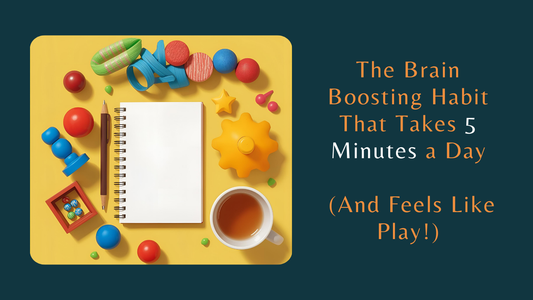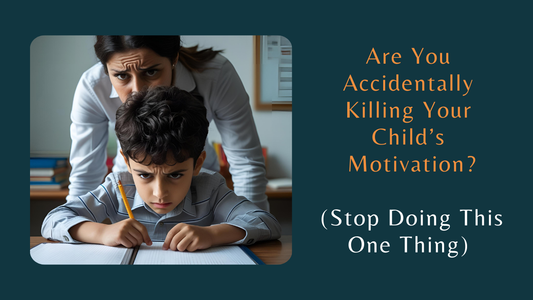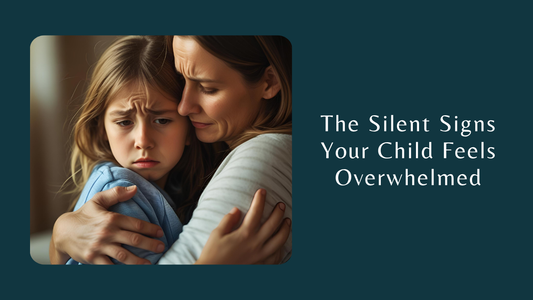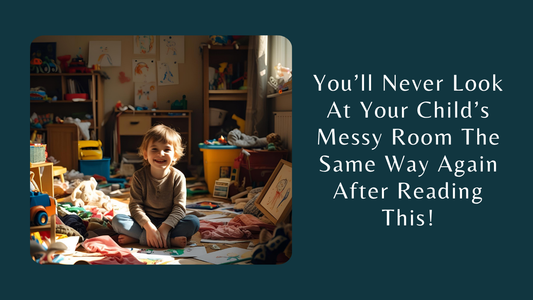As adults, we often feel when we’re reaching our limit. We say things like, “I just need five minutes,” or “I’m totally overloaded today.”
But children? They don’t always have the vocabulary - or even the self-awareness - to realise they’re overwhelmed. So instead, their discomfort shows up in silence, squabbles, clinginess, or completely “random” meltdowns.
Here’s the truth: many kids are overwhelmed far more often than we realise. Not because we’re doing anything wrong - but because the world can just be a lot for small brains and big feelings.
Let’s explore the subtle signs your child may be feeling overwhelmed… and how to help in a way that soothes, not stresses.
Sudden Clinginess

If your usually independent child suddenly won’t let go of your leg, insists you stay right next to them, or gets upset when you leave the room - it could be a sign that something feels “too much” in their world.
Whether it’s a new sibling, a noisy classroom, or just a long day, clinging is their way of saying, “I need to feel safe.”
What helps:
Offer presence, not pressure. Sit with them. Slow your voice. Create small rituals of reconnection, like a five-minute cuddle or a shared snack at the end of the school day.
Irritability or Sudden Anger Over "Nothing"

You offer the blue plate instead of the green one, and suddenly - they’re shouting. Or crying. Or both.
Tiny triggers often mask bigger emotions. When a child is emotionally full, even small things feel like the final straw.
What helps:
Avoid trying to fix it straight away. Say something like, “It’s okay to feel big feelings. I’m here.” Then offer calm, physical grounding - a drink of water, a tight hug, a walk outside.
Withdrawal or Silence

Some children don’t melt down - they shut down.
They become unusually quiet. They avoid eye contact. They retreat to their room or refuse to join in with family activities. This is their nervous system going into self-protection mode.
What helps:
Gently invite them into low-pressure connection: “Want to sit with me while I read?” Or “I made your favourite snack - want to share it on the sofa?” No questions, no expectations - just quiet companionship.
Trouble Sleeping or Frequent Night Waking

When kids feel overwhelmed, their brains don’t always switch off easily. Bedtime becomes a battleground. Or they wake up more often and struggle to settle.
What helps:
Instead of pushing harder for sleep, create wind-down routines that calm the nervous system, not just the clock. Try:
- Bathtime with magnesium flakes
- Soft lighting + quiet background music
- Talking through the day’s “best bit and worst bit”
- A body scan meditation or a simple breathing game
Complaining about Tummy Aches or Headaches

Children’s stress often shows up physically - especially if they’re too young to verbalise what’s going on. Frequent stomach aches, nausea, or general “I don’t feel well” complaints might actually be anxiety in disguise.
What helps:
Rule out illness, of course. But if everything checks out physically, offer reassurance: “Sometimes our bodies feel funny when we’re worried.” And then open the door gently: “Has anything been feeling hard lately?”
Constant "I am bored" or Restless

When kids are overstimulated, they can struggle to sit still, focus, or settle into play. Ironically, they often say they’re “bored” - not because they need more, but because their brains need less.
What helps:
Declutter the day. Try quiet, sensory play - sand trays, water, colouring, baking. Reduce background noise. Create slow, predictable rhythms with plenty of white space.
Regression (Toileting, Sleep, Speech, etc.)

Overwhelm often sends kids backwards before they can go forwards. A potty-trained toddler starts having accidents. A chatterbox starts baby-talking. A child who used to sleep through now wakes every night.
What helps:
Resist the urge to push them “back to normal.” Offer patience and safety. Say, “Sometimes our bodies do funny things when we feel overwhelmed. It’s okay. I’ve got you.”
What can you do?
Connect First, Correct Later. Overwhelm is a nervous system issue, not a discipline issue.
Create Calm before Control. Lower lights, soften your voice, take three slow breaths together.
Embrace "Slow parenting". Less rushing, more rituals. Less doing, more being.
And Remember: If your child feels safe enough to fall apart with you - that’s a sign you’re doing something right.




